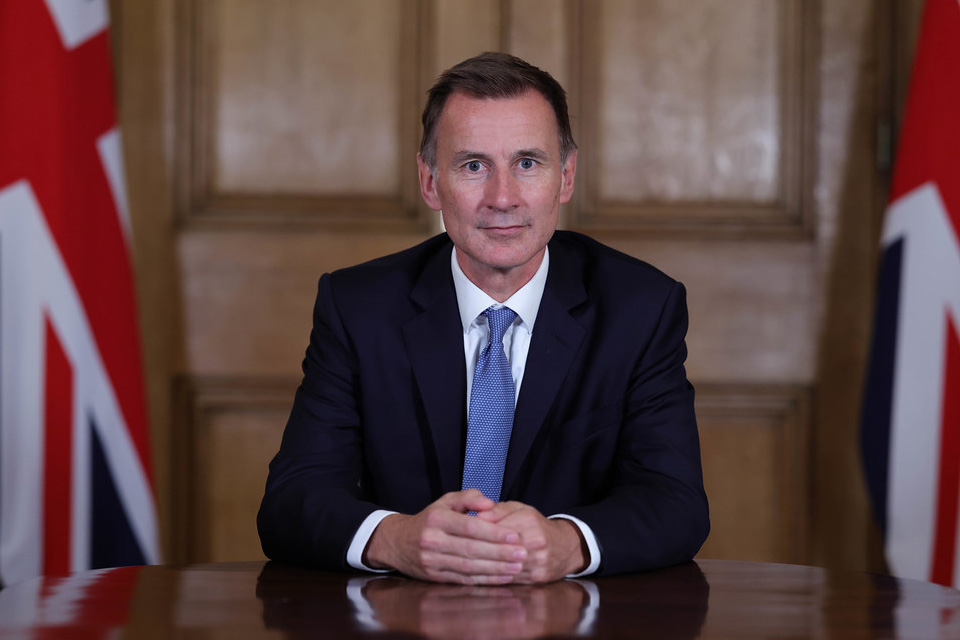A strong NHS needs a strong economy
Health Secretary Jeremy Hunt writes about the implications for the health service if Britain leaves the EU.

In a Guardian article, Jeremy Hunt writes about what Brexit would mean for the NHS.
I want Britain’s voice to be strong in the world and believe we will be better off and more secure by remaining in the European Union. As health secretary, I also need to consider the impact of leaving on our NHS.
The NHS remains one of the reasons why people are proud to be British. It provides outstanding care to more than a million of us every day, despite huge pressure caused by tight finances and an ageing population.
At the last election, the British people were clear – a strong NHS needs a strong economy. So those who back Brexit need to explain what that would mean for the NHS.
I am not someone who believes we could not survive economically outside the EU. Nor do I believe that – as the world’s fifth largest economy – we would not eventually negotiate new trade deals.
But we know that would involve years of economic uncertainty and that no country outside the EU has ever secured full, unfettered access to the single market.
Even the most bullish Brexiteers concede that the short-term impact on the British economy would be a period of uncertainty and volatility. The independent Office for Budget Responsibility has said that “there appears to be a greater consensus that a vote to leave would result in a period of potentially disruptive uncertainty while the precise details of the UK’s new relationship with the EU were negotiated”. And therein lies the risk to the NHS of leaving.
Those wishing to leave might say this uncertainty is a price worth paying, but my concern is more practical. The NHS consumes the second biggest budget in Whitehall. Next year, thanks to this government’s success in turning around the economy, it will have the sixth biggest increase in its history.
Investing in the NHS will always be a priority for this government, but the simple fact is this: an economic shock would put pressure on our finances. According to the OECD, Greece, Portugal, Spain and Italy all cut health spending per head following the economic crisis.
Of course, our economy is stronger and more resilient, but only in the last 2 weeks a series of studies from the likes of the London School of Economics, Oxford Economics and the CBI have shown that the impact of an exit could cost the UK more than 5% of the size of our economy.
This would inevitably mean less money for public services like the NHS. Those who want to leave need to explain how they could protect the NHS from this economic shock.
Some supporting Brexit argue that the money we would no longer pay to the EU could be spent on the NHS. But I doubt that. First, some of those same people argue that we should be like Norway or Switzerland – but both these countries still pay into the EU.
Second, those same people have offered different promises to spend these supposed “savings” several times over.
But, most importantly of all, it would be a shock to the economy that would truly undermine the public finances. No savings can compensate for the economic volatility that would follow a vote to leave.
Then there is the argument about health tourism from the EU. The truth is that the costs of EU visitors using the NHS can be recovered from their home countries under current EU law.
However, only recently has the NHS started to make headway in tracking and recovering those costs. Last year we doubled the amount identified from EU visitors through Ehic [European health insurance] cards, and we will go further in future.
Another issue is the damage caused by losing some of the 100,000 skilled EU workers who work in our health and social care system. Uncertainties around visas and residency permits could cause some to return home, with an unpredictable impact on hard-pressed frontline services.
My vision for the NHS is simple: I want us to offer the safest, highest quality care available anywhere in the world – including the 7 day NHS we promised in our manifesto.
All the progress we are making – including the 11,000 extra doctors and 12,000 extra nurses we have recruited since 2010 – is only possible on the back of a strong economy. But despite the funding increases that our strong economy has delivered, life is very challenging on the NHS frontline right now.
Our doctors and nurses have never worked harder. Their passion and determination is to do the right thing for patients. Against that backdrop, Brexiteers need to be honest that a period of economic uncertainty and volatility poses a real challenge to the NHS.
It is not just a question of the risk to the pounds in our pocket, but to the pounds in the NHS budget as well. We should not take that risk.